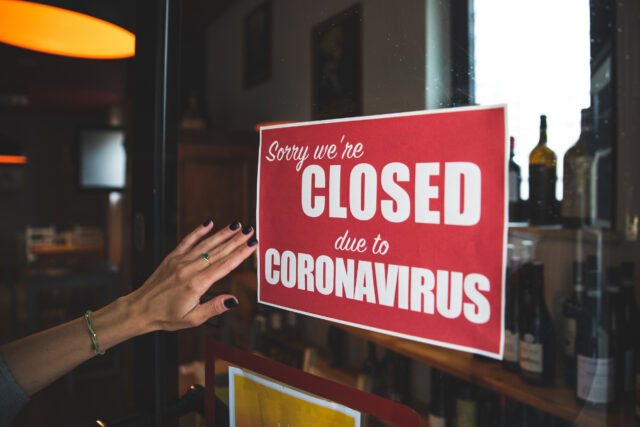According to a report released on Friday, since December 2019 nearly 12,000 bars, pubs and restaurants have closed in Britain – a rate of around 30 a day, and this is expected to rise sharply over the coming months.

Such numbers come from the latest edition of the Market Recovery Monitor from CGA and AlixPartners, which illustrates the full toll that the pandemic has had on the hospitality sector, while also considering the immediate future for licensed premises, which looks bleak.
Although the UK Government has pledge to allow a re-opening of trading outside for venues from mid-April, this is likely to be of little benefit to the hospitality sector as less than half of England’s pubs, bars and restaurants have an outdoor area.
While 4,170 new sites have been recorded since December 2019, the loss of 11,894 venues means there have been nearly three closures for every fresh opening—leading to a net loss of 7,724 licensed premises.
The report also warns that the number of permanent closures is expected to rise sharply, as the effects of trading restrictions – including a catastrophic drop in trade over the key month of December – take their toll.
This has been exacerbated by lost trade during other key dates in the hospitality sector as a result of the UK lockdown, notably New Year’s Eve and more recently, Valentine’s Day,
While the sector now has a roadmap to reopening, research for the Monitor suggests that the freedom to trade outside from mid-April will be of limited benefit.
Well under half (43.2%) of England’s pubs, bars and restaurants have an outdoor area of some kind, and while the number is higher among food pubs (78.4%) and community pubs (71.0%), it is far lower on high streets (25.6%) and among casual dining restaurants (11.4%).
“These numbers set out the full, devastating impact of the pandemic on Britain’s licensed premises,” said Karl Chessell, CGA’s business unit director for hospitality operators and food, EMEA. “The wipeout of Christmas trade was clearly the final blow for many businesses, and the long wait that others now face to open their doors sadly means closures will mount even higher.”
The new Market Recovery Monitor from CGA and AlixPartners also reveals that the food-led sector has been hit harder by COVID-19 than the drink-led market, losing 7.6% and 5.5% of total sites respectively.
The casual dining sector has contracted by 15.8% – equivalent to more than 1,000 casual dining restaurants, or nearly one in six of the total, shutting their doors since December 2019.
But the report also points to resilience in some areas of the market, including bars and cafes. Many city centres have also proved more durable than expected, with central Sheffield, Liverpool, Edinburgh and Nottingham all losing fewer than 3% of their licensed premises since December 2019, and the London market trimmed by a below-average 6.3%.
It provides optimism that major cities may rebound quickly when the hospitality sector is able to trade again.
“There is huge pent-up demand for hospitality among consumers, and it is encouraging to see signs of resilience in the sector,” said Chessell. “Pubs have proved more durable than restaurants in recent months, and outside service will give many of them a useful kickstart if the sun shines. Amid all the closures, it’s also encouraging to see a steady flow of new entrants to the market. We remain very confident about the long-term future of the sector, but unfortunately there is more pain to come first.”
AlixPartners’ managing director Graeme Smith said: “While the Prime Minister says the country is on a one-way road to freedom, the hospitality sector still faces months of subjugation. Businesses have spent almost an entire year closed or operating under the most severe restrictions, and the Government’s roadmap to reopening does very little to ease their pain in the near-term.”
He added, “While permitting businesses to trade outdoors from mid-April will clearly benefit some segments of the market, a significant proportion of operators, even some of those with outdoor space, will not find it a viable option. For many businesses, it will not be until mid-June, when restrictions are more fully lifted, that they will be able to trade on a profitable basis. ”
Continuing, he said, “The rapid acceleration in site closures since the start of the year demonstrates just how brutal the situation is. Businesses are burning through cash at an alarming rate as costs stack up, and within the sector there is despair as to why hospitality is at the back of the queue when it comes to reopening. The Budget is absolutely crucial to the future survival of thousands of sector businesses; a substantial package of financial support is needed to prevent greater numbers of closures across this year and beyond.”
The Market Recovery Monitor is based on CGA’s exclusive Outlet Index, a constantly updated database of the country’s premises. It will be published monthly in 2021 to help track the sector’s progress.
Read more
THE TRUE COST OF KEEPING A PUB SHUT FOR THE NEXT SEVEN WEEKS




